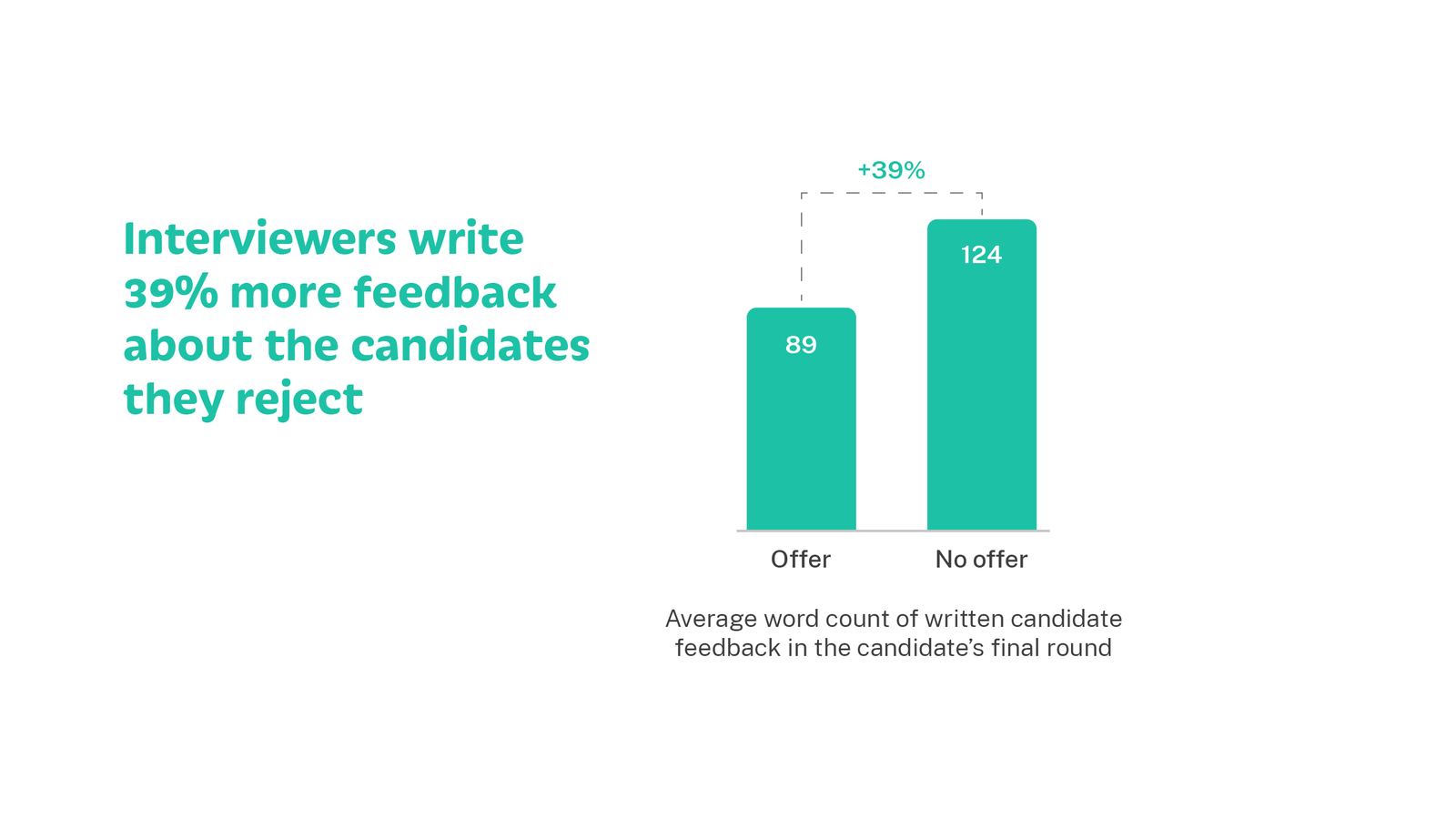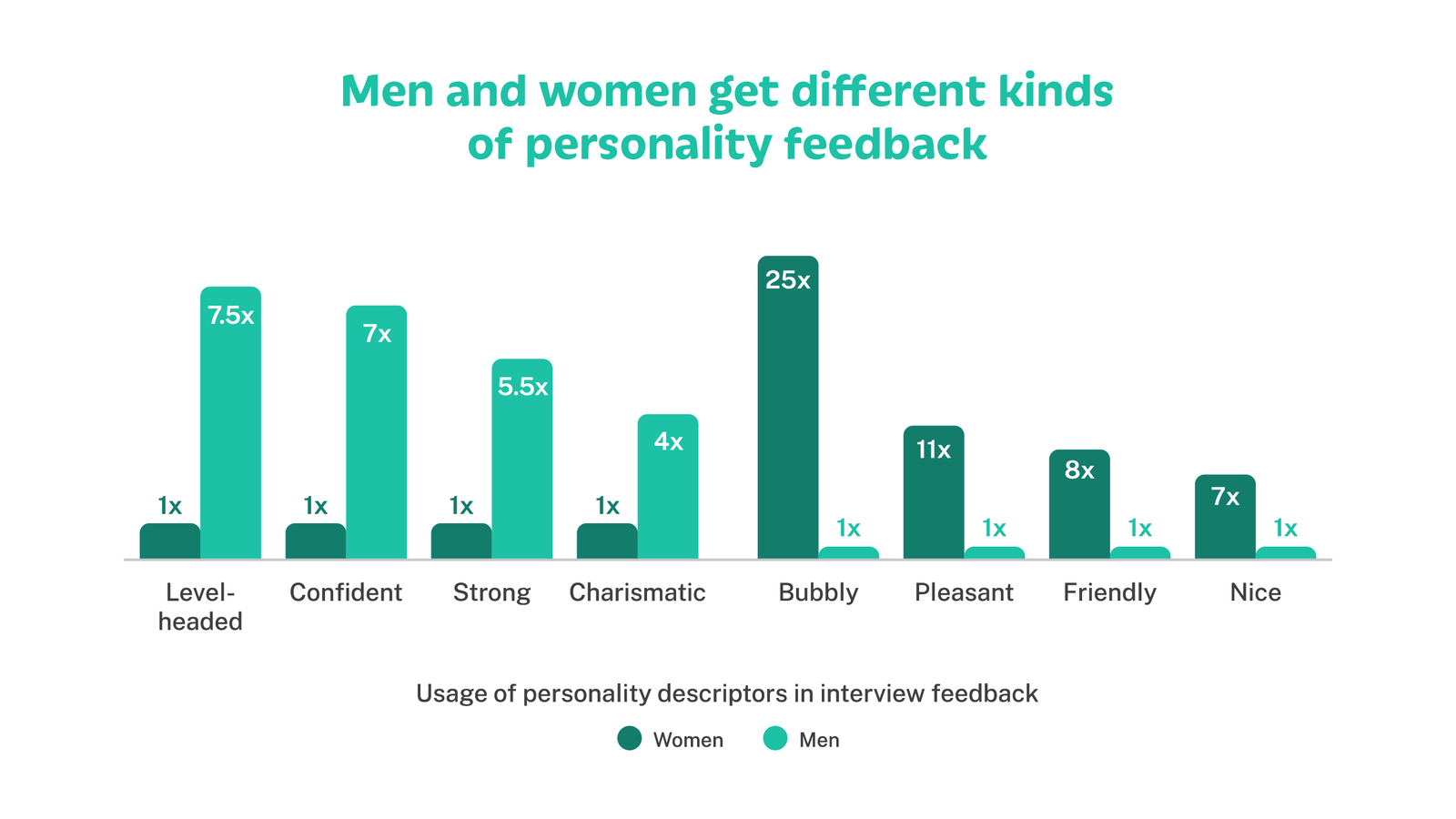“Vibe hiring” is tanking team performance. Here’s how to stop it.
Textio research finds most people make hiring decisions based on vibes. Learn why skills-based hires lead to better performance and retention.
April 29, 2025
.png)
Hiring is some of the most critical and consequential work any business does, and every team aims to hire high performers. These folks can deliver 400% more productivity than the average employee. One high-performing employee can boost the productivity of their entire team by up to 15%.
Given how important high performers are, you’d expect hiring teams to run a clear and structured process to identify the best candidates. Unfortunately, overworked teams often cut corners. They end up with a messy process that not only fails to find the best candidates, but also exposes the organization to legal risk.
Textio’s latest research analyzed the feedback that hiring teams write about candidates during the interview process. Our findings are a call to action for leaders.
We default to vibe hiring when there’s no structured process
Our research found that people make hiring decisions based on likability, and candidates who receive offers are far more likely to be described by their personality.

When assessing whether a job candidate is a good fit for an open role, hiring teams often rely on their “gut feelings” about the way a job candidate makes them feel, instead of an objective evaluation of how well a candidate’s skills and experience match the requirements for the job.
Documenting written interview assessments can feel tedious in the moment. But structured candidate evaluations can be the difference between a fair, skills-based hiring decision and a subjective process that puts your organization at risk.
We write more feedback to justify rejections
Across all interviews, we found that hiring teams write 39% more feedback when a candidate is not getting an offer. And interviewers write 17% more feedback about women than men—even though women are also more likely to have no documented feedback at all.

Wait, what? Why would hiring teams write more feedback when they’re rejecting someone? Wouldn’t you want to clearly understand why you’ve hired the person who is about to become your colleague?
This is happening because interviewers are rejecting candidates based on an instinct or “gut feeling.” Then, in an attempt to make their evaluations seem objective, they’re over-explaining their decisions. Usually this happens subconsciously.
We give more personality feedback to candidates that get offers
In 2021, a large study of 7,650 job candidates found that when interviewers explicitly documented their assessment of candidate performance against job-related capabilities, the eventual hires performed better in their roles, were promoted more often, and stayed with their organizations longer.
In other words, when hiring teams document clear skills assessments in their interview feedback, they make better hires.
Unfortunately, by the time a candidate receives an offer, they are 12x more likely to be described as having a “great personality” and 5x more likely to be described as “friendly,” instead of being described by their skills and project experiences.
Furthermore, our findings show that personality-based feedback reinforces harmful gender stereotypes. Men are described as “level-headed” 7.5x more and “confident” 7x more than women job candidates, while women are described as “bubbly” 25x more and “pleasant” 11x more than men.

What talent leaders can do
These findings are a call to action for leaders. If we want to improve hiring for both candidates and employers, we need to move away from gut-driven decision-making and toward structured, transparent processes that create better results for everyone.
Read the full report on interview feedback and consider where your interview processes may need more structure to be effective. Hiring top talent and leading business performance is at stake.
To hear more explosive findings from our report, and what you can do about them, watch our webinar on interview feedback here.